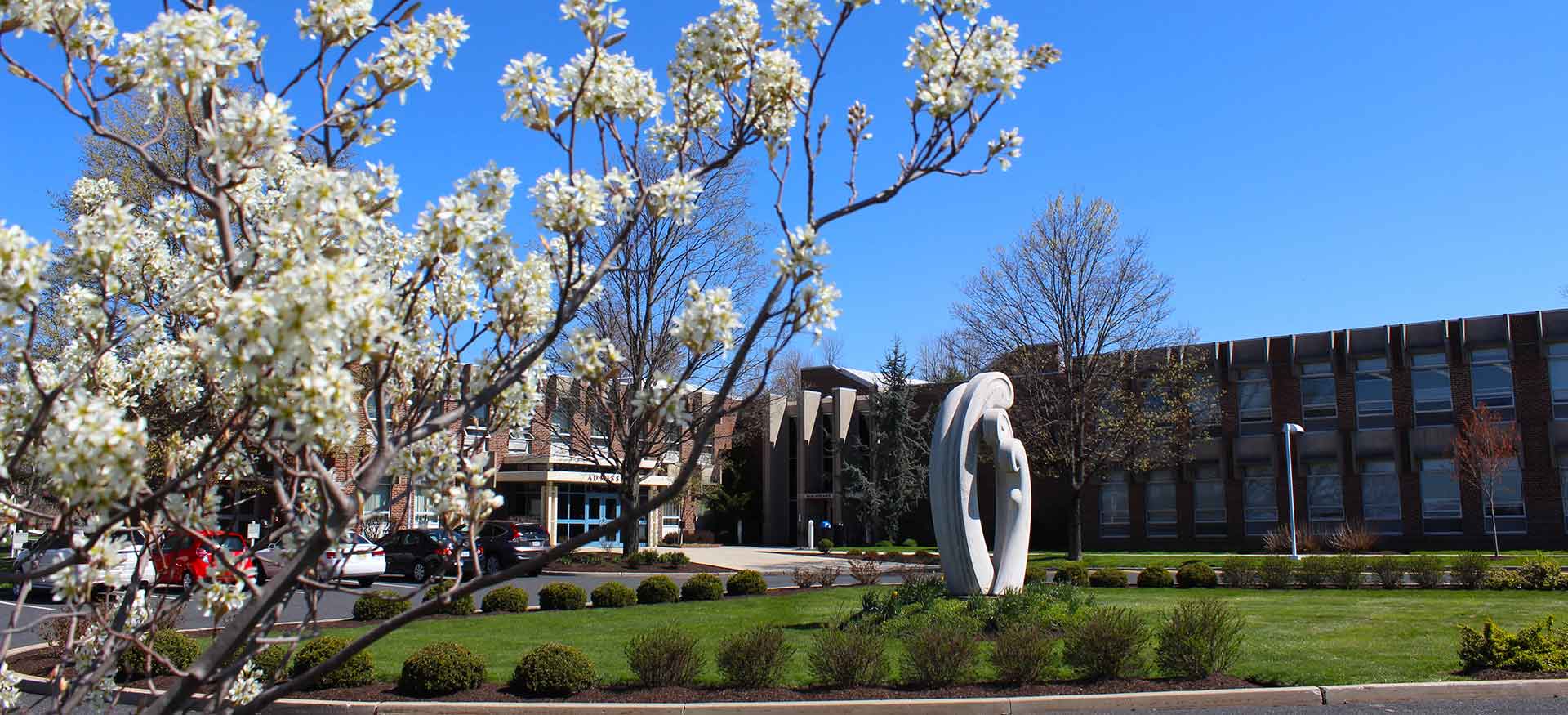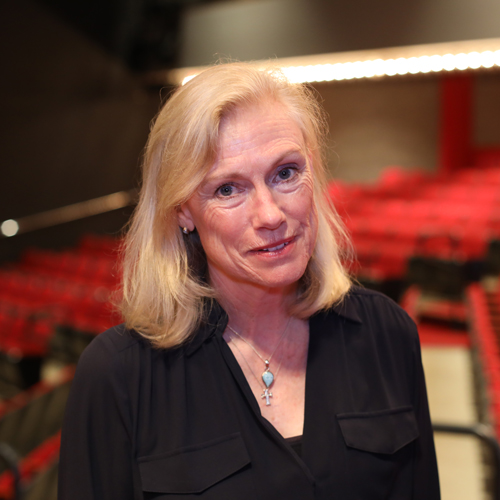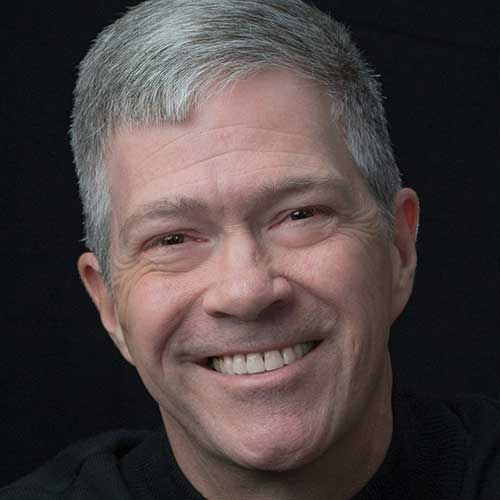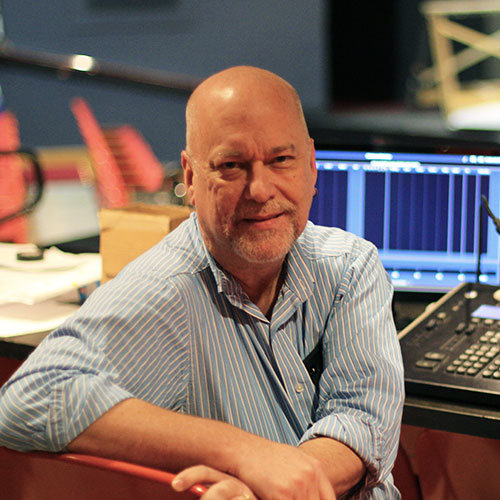Act 1 Presents Chekhov’s “The Cherry Orchard” in a New Adaptation
Tony Award-winning Stephen Karam’s New Version Highlights Contemporary Themes in Chekhov’s Masterpiece
Act 1 DeSales University Theatre presents Anton Chekhov’s masterpiece “The Cherry Orchard” from February 21 through March 3 on the main stage of the Labuda Center for the Performing Arts on the DeSales University campus.
“‘The Cherry Orchard’ examines the challenge of complex progress in changing times,” says John Bell, producing artistic director.
“Ultimately, Chekhov wrote a heartbreaking play about resilience in the face of life's disappointments,” says Bell. “Given the pace of change in our modern society, this new version by playwright Stephen Karam, which is both ordinary and poetic, is particularly relevant for a modern audience.”
The Play
As Russia hurtles toward revolution at the start of the 20th century, a widowed aristocrat returns home after years abroad to her family’s estate, which is on the verge of financial ruin. Faced with the prospect of losing their beautiful cherry orchard and the world it seems to represent, she and her brother cast about for a path forward — but they are too deeply immersed in memories and lost dreams of their youth to take control of their shifting fortunes.
“Ultimately, Chekhov wrote a heartbreaking play about resilience in the face of life's disappointment.”
A bittersweet story of love, loss, and social change, Chekhov’s last play offers a rich tapestry of characters, interwoven with poignant nostalgia and wry commentary on a society on the brink of upheaval. “In the face of coming revolution, Chekhov created characters encountering the change with naive optimism, with an entrepreneurial spirit, and finally, in mourning,” says Bell.
The anxieties at the heart of this play are contemporary. “Much like in America today, it can be hard to know if things are getting better or worse,” says Bell.
One of Russia’s best-known playwrights, Chekhov wrote “The Cherry Orchard” in 1903. It premiered in Moscow the following year, after his death, helmed by renowned director and theatrical innovator Konstantin Stanislavski.
Chekhov pioneered theatrical naturalism — having his actors perform the everyday instead of the fantastic; the Russian public was used to romanticism, in which a more fantastical style of performance was much more common. Chekhov wanted audiences to experience honesty and realism when they came to the theater. He strove to represent life on stage exactly as it was in real life. “It’s subtle writing and deep work for young actors. Exactly the type of challenge a university theatre program should be undertaking” say Bell.
While Chekhov incorporated elements of his own life into all of his work, “The Cherry Orchard” is his most autobiographical play. When he was a teenager, his family’s beloved cherry orchard was cut down — his mother was tricked by contractors into selling the family territory.
The Production
The DeSales production is based on a celebrated new version by award-winning playwright Stephen Karam, written in an American vernacular and style. Karam won a Tony Award for Best Play for “The Humans” in 2016 and was a Pulitzer Prize finalist for “The Humans” and “Sons of the Prophet.”
The world of the Gayev estate and orchard is brought to life by resident scenic designer Will Neuert with period costumes by guest costume designer Deborah Burrill. The lighting design is by resident lighting designer Eric T. Haugen with sound design by resident sound designer William Neal.
The production opens on Thursday, February 21 and runs the first week through Saturday, February 23 with performances at 8:00 PM and concludes with a matinee performance on Sunday, February 24 at 2:00 PM. Following the Sunday, February 24 performance there will be a “talk back” with the director and cast. Show times for the second week include a weekday matinee on Tuesday, February 26 at 9:45 AM and continuing with performances Wednesday, February 27 to Saturday, March 2 at 8:00 PM and a 2:00 PM matinee on Sunday, March 3. The production takes place in the main stage of the Labuda Center for the Performing Arts. (editor's note: The original Wednesday, February 20 performance was cancelled due to inclement weather.)
Accessibility
In an effort to improve accessibility for all patrons, the Saturday, February 23, 8:00 PM matinee performance will feature Open Captioning for patrons who are deaf or hard of hearing and Audio Descriptions for patrons who are blind or visually impaired. During Open Captioned performances, all dialogue and sound effects are presented in real-time on an LED screen that is adjacent to the stage. During Audio Described performances, all action and physical appearances are described live through a headset. Tickets are half price for patrons using these special services on this date.
More Information
Please call box office manager Nicole Moyer at 610-282-3654, ext. 1







